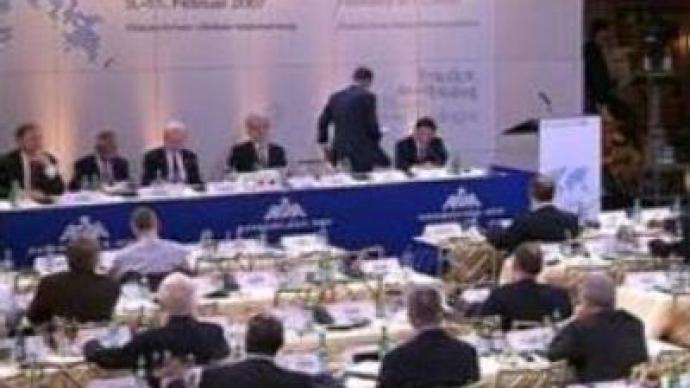Security Conference in Munich ends

On the final day of Munich's Security Conference the world's power-brokers discussed Trans-Atlantic relations, the Middle East and international terrorism. However, the big topic remained Russia’s President stinging attack on the U.S. a day earlier.
Russia's Defence Minister, Sergey Ivanov, attempted to ease concerns saying it wasn't meant to be aggressive or confrontational. His warning was stark. The threat of international terrorism will grow and new large-scale attacks are possible. So, says Sergey Ivanov, the international community has no other choice but to take immediate and effective measures to mend the split in civilization which terrorists are using to further their interests. “Russia still thinks that we should continue using one clear standard,” stressed Mr Ivanov. “If a terrorist is hiding in another country, we should use a standard procedure – either extradite or prosecute. There's nothing else. There is nothing third or fourth, no other options.” The issue of international terrorism topped the agenda during the final day of the event, alongside the topic of 21st Century Trans-Atlantic relations and Middle East security. The organiser of the conference welcomed Russia’s presence in Munich. And any misunderstandings that may exist seem to have been calmed down by Mr Ivanov's address.“I thought he softened the tone,” owned U.S. Senator McCain, “and I thought that was helpful that he invited us all to come and visit them to Moscow and we look forward to it.” The sentiment was echoed by U.S. Defence Secretary, Robert Gates. In his first major speech as chief at the Pentagon he called for a closer partnership between NATO and Russia, and he responded to Moscow's concerns about U.S. plans to site missile defence systems in Eastern Europe. “With respect to ballistic missile defence, we are doing this frankly and supportive to our friends in Europe,” underscored Mr Gates, “as we look at the potential of development of longer range missiles not only in Iran but perhaps elsewhere. It's not protection against Russian missiles. It's not directed against Russia. It's to provide protections for our friends and allies who are participating in this.” The U.S. says the defence system is aimed at warding off attacks from countries including Iran. The country's top nuclear negotiator, Ali Larijani, also spoke at the conference. He underlined that his country's nuclear programme was purely peaceful and said Tehran was prepared to settle all outstanding issues with the UN's nuclear watchdog. But his words were met with scepticism. “Mr Larijani was representing a different country than President Ahmadinejad,” countered Senator Joe Lieberman. “The world community through the IAEA has decided that Iran is building nuclear weapons.” Senator Lieberman called Mr Larijani’s address “a propaganda speech”.
There occured, certainly, some surprises at this year's Security Conference. President Putin's speech led some to speak of a new Cold War. But with international terrorism brought to the fore, the focus now is on how the world can work together to combat a common threat.
You can share this story on social media:












